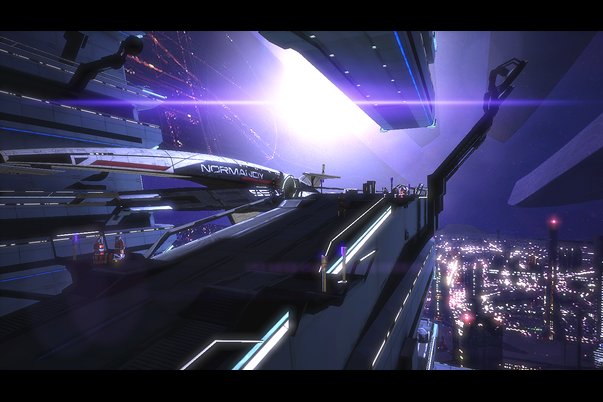Mass Effect - BioWare Interview, Part Two
Where are role playing games headed... and how will this epic sci-fi saga get them there?
GamesRadar: In creating an entirely new sci-fi universe, with new planets and new characters, where do you begin?
RM: A sheet of paper. Literally with the very basics. You look for inspiration, from great sources. We have a library with all these books and movies and television shows. You bring in writers and designers from our industry as well as people from other industries to teach. You get inspiration from all that and think about how to integrate it.
GZ: The key thing is that you want something new and fresh. You get all these different ingredients...
RM:...But they're for background. You may do something 180 degrees different from them but at least they made you think.
GZ: The world design took about a year. That was a huge part of the process.
RM: Concept art, design documents, vision docs.
Sign up to the GamesRadar+ Newsletter
Weekly digests, tales from the communities you love, and more

GZ: Even when we worked on Star Wars, we didn't take the current stuff. We worked 5,000 years before.
RM: Yeah, we had the opportunity to work on a movie-based game of Star Wars or an undeveloped part of the Star Wars universe that only had six comic books - The Tales of the Jedi. We chose that untapped part of the universe because it was more exciting and more interesting for our creators to develop. This is one more step. There's nothing developed... there's no fiction. You have to build your own fiction, your own premises of what this world is about. You have to apply rules to the universe. You've got humanity, so obviously there's some familiar territory, but you've also got alien races and uncharted worlds you've never been to. Mass effect, dark energy, biotic powers. You have to think about how you apply those.
It's a very collaborative process, too, so the designers, artists, animators, producers, programmers, QA and marketing are involved. You start with brainstorming meetings and a general idea, then work to this narrower and narrower focus like concentric circles. It's as much about figuring out what you're not developing as what you are developing. Constraint fuels creativity.



